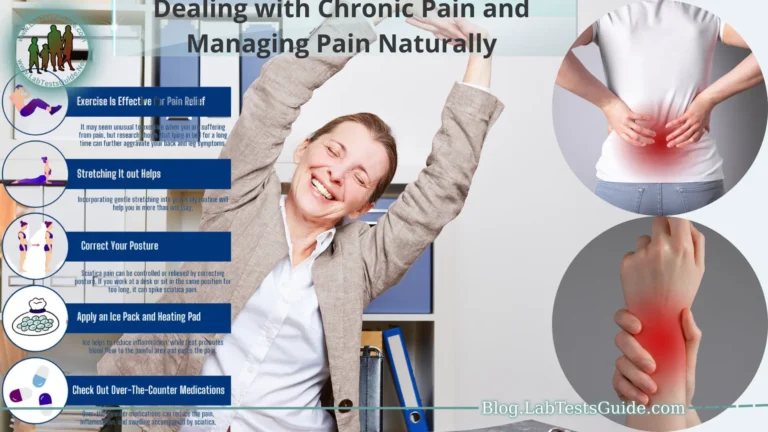Obsessive-Compulsive Disorder (OCD) is a mental health condition characterized by recurring thoughts, images, or urges known as obsessions that cause significant distress. These obsessions often lead to the development of repetitive behaviors or mental acts called compulsions, which are performed in an attempt to alleviate the anxiety caused by the obsessions. OCD affects people of all ages and can have a profound impact on their daily lives, relationships, and overall well-being.

The prevalence of OCD is relatively high, with estimates suggesting that approximately 1-3% of the population worldwide experience this disorder at some point in their lives. It can manifest in various ways, with individuals experiencing different types of obsessions and compulsions. Common obsessions include fears of contamination, intrusive thoughts of harm or aggression, excessive doubts about safety or order, and a need for symmetry or exactness. Compulsions often involve repetitive behaviors such as excessive handwashing, checking, arranging or counting objects, or seeking reassurance.
What is Obsessive-compulsive disorder (OCD) ?
Obsessive-Compulsive Disorder (OCD) is a mental health condition characterized by recurring, unwanted, and intrusive thoughts (obsessions) and repetitive, ritualistic behaviors or mental acts (compulsions). People with OCD often feel compelled to engage in these rituals or behaviors to alleviate anxiety or prevent a feared outcome, even though they recognize that these thoughts and actions are excessive or unreasonable.
Symptoms of Obsessive-Compulsive Disorder (OCD) :
The symptoms of Obsessive-Compulsive Disorder (OCD) can vary from person to person but generally include the following:
- Obsessions: These are intrusive and persistent thoughts, images, or urges that cause significant distress. Common types of obsessions include:
- Fear of contamination or germs
- Unwanted or taboo thoughts involving violence, religion, or sexuality
- Need for symmetry, order, or exactness
- Excessive doubt or need for reassurance
- Fear of harming oneself or others
- Compulsions: These are repetitive behaviors or mental acts that individuals feel compelled to perform in response to their obsessions. The purpose of compulsions is to alleviate anxiety or prevent a feared outcome. Examples of compulsions include:
- Excessive handwashing or cleaning
- Checking and rechecking things (e.g., locks, appliances) repeatedly
- Counting or arranging objects in a particular order
- Repeating certain words, phrases, or prayers
- Mental rituals such as silent counting or praying
- Impact on daily life: OCD symptoms can significantly interfere with a person’s daily activities, relationships, and overall quality of life. Individuals with OCD may spend a significant amount of time each day performing their rituals or mental acts, which can disrupt their work, school, or social functioning.
- Distress and resistance: People with OCD often experience distress and anxiety due to their intrusive thoughts and engage in compulsions as a way to cope. However, they also recognize that their obsessions and compulsions are excessive or unreasonable. Despite this recognition, they find it difficult to control or stop the behaviors.
What is Seeking Professional Help:
Diagnosis by a Mental Health Professional:
- The importance of professional diagnosis: Why it is crucial to seek a formal diagnosis from a qualified mental health professional.
- Evaluation and assessment: The process of evaluating symptoms, medical history, and conducting diagnostic interviews.
- Differential diagnosis: Distinguishing OCD from other related disorders.
Types of Treatment Options:
- Psychotherapy: Exploring the role of therapy in OCD treatment, including various approaches like Cognitive-Behavioral Therapy (CBT), Exposure and Response Prevention (ERP), Acceptance and Commitment Therapy (ACT), and Dialectical Behavior Therapy (DBT).
- Medications: An overview of psychiatric medications commonly used to manage OCD symptoms, such as selective serotonin reuptake inhibitors (SSRIs) and tricyclic antidepressants (TCAs).
- Combination of Psychotherapy and Medications: The potential benefits of combining therapy and medication in OCD treatment.
Finding a Qualified Therapist:
- Importance of finding the right therapist: The role of a qualified therapist in providing effective treatment.
- Factors to consider when choosing a therapist: Factors like experience, expertise in OCD treatment, therapeutic approach, and personal rapport.
- Seeking professional recommendations: Seeking referrals from healthcare providers, support groups, or trusted sources.
Seeking professional help is a crucial step in managing OCD. This section provides an overview of the diagnostic process conducted by mental health professionals, including the importance of a formal diagnosis and the evaluation and assessment methods used. It also explores the different types of treatment options available, such as psychotherapy and medications, along with the potential benefits of combining these approaches. Additionally, guidance is provided on finding a qualified therapist, including factors to consider and seeking recommendations from trusted sources.
Self-Help Strategies for Managing OCD Symptoms:
Education and Understanding:
- Learning about OCD: Educating yourself about the nature of OCD, its causes, and common symptoms.
- Understanding triggers: Identifying triggers that exacerbate your OCD symptoms and learning to recognize them.
Building a Support Network:
- Seeking support: Reaching out to trusted friends, family members, or support groups who can provide understanding and encouragement.
- Joining OCD communities: Participating in online or local support groups specifically tailored to individuals with OCD.
Stress Management Techniques:
- Stress reduction: Identifying and implementing stress management techniques such as deep breathing exercises, mindfulness, and relaxation techniques.
- Time management: Developing effective time management skills to minimize stress and create a sense of structure.
Lifestyle Changes:
- Healthy lifestyle habits: Adopting a balanced diet, regular exercise routine, and sufficient sleep to support overall well-being.
- Limiting substance use: Reducing or eliminating the use of substances like alcohol or drugs, as they can worsen OCD symptoms.
Relaxation and Mindfulness Techniques:
- Meditation and deep relaxation: Practicing meditation, guided imagery, or progressive muscle relaxation to promote calmness and reduce anxiety.
- Mindfulness-based practices: Incorporating mindfulness techniques into daily life to enhance present-moment awareness and reduce obsessive thinking.
Setting Realistic Goals:
- Goal setting: Setting achievable goals for managing OCD symptoms and gradually working towards them.
- Celebrating progress: Recognizing and celebrating even small victories in managing and reducing OCD symptoms.
Exposure and Response Prevention (ERP) Therapy:
Explanation of ERP Therapy:
- Understanding ERP: An overview of the principles and goals of Exposure and Response Prevention therapy.
- Breaking the cycle: How ERP aims to disrupt the cycle of obsessions and compulsions.
- Gradual exposure: The gradual exposure to feared situations or triggers without engaging in the usual compulsive behaviors.
Steps Involved in ERP Therapy:
- Creating an exposure hierarchy: Collaboratively developing a list of feared situations or triggers ranked from least to most anxiety-provoking.
- Exposure exercises: Engaging in planned exposures, starting with the least anxiety-inducing situations and gradually progressing.
- Response prevention: Resisting the urge to engage in compulsive behaviors or rituals during and after exposure exercises.
Challenges and Tips for Successful ERP:
- Dealing with discomfort: Coping with the initial anxiety and discomfort that exposure may bring.
- Maintaining consistency: The importance of regular practice and consistency in ERP exercises.
- Seeking support: Utilizing the support of a therapist or support group to navigate challenges and stay motivated.
Cognitive-Behavioral Therapy (CBT) Techniques:
Cognitive Restructuring:
- Identifying negative thought patterns: Recognizing and challenging cognitive distortions associated with OCD, such as black-and-white thinking, overgeneralization, and catastrophic thinking.
- Thought monitoring: Keeping track of obsessive thoughts and the emotions and behaviors they trigger.
- Cognitive reframing: Replacing irrational or distressing thoughts with more balanced and realistic ones.
Thought Stopping:
- Interrupting obsessive thoughts: Learning techniques to interrupt or stop obsessive thoughts when they occur.
- Using cues or commands: Employing visual or verbal cues to signal the interruption of obsessive thoughts.
- Redirecting attention: Shifting focus onto more constructive or positive thoughts or engaging in a different activity.
Mindfulness-Based Cognitive Therapy:
- Mindfulness techniques: Cultivating present-moment awareness and non-judgmental acceptance of one’s thoughts and experiences.
- Observing thoughts and emotions: Learning to observe OCD-related thoughts and emotions without attaching to or being controlled by them.
- Radical acceptance: Acknowledging the presence of obsessions and discomfort while maintaining a compassionate and non-reactive stance.
Cognitive-Behavioral Therapy (CBT) is a widely recognized and effective treatment approach for OCD. This section explores specific CBT techniques commonly used in OCD treatment.
Other Therapeutic Approaches:
Acceptance and Commitment Therapy (ACT):
- Core principles of ACT: Understanding the key principles of acceptance, mindfulness, and value-based action.
- Defusion techniques: Learning to distance oneself from distressing thoughts and beliefs.
- Values clarification: Identifying personal values and aligning actions with those values, despite the presence of OCD symptoms.
Dialectical Behavior Therapy (DBT):
- Emotion regulation: Developing skills to manage intense emotions associated with OCD, such as anxiety, frustration, and guilt.
- Distress tolerance: Building resilience and coping strategies to tolerate distress without resorting to compulsive behaviors.
- Interpersonal effectiveness: Enhancing communication and relationship skills to navigate social interactions and support systems.
Group Therapy and Support Groups:
- Group therapy benefits: Exploring the advantages of participating in group therapy for individuals with OCD.
- Peer support: Connecting with others who share similar experiences, challenges, and successes in managing OCD.
- Psychoeducation and shared experiences: Gaining knowledge about OCD, learning from others’ coping strategies, and receiving validation and support.
In addition to Exposure and Response Prevention (ERP) and Cognitive-Behavioral Therapy (CBT), there are other therapeutic approaches that can be beneficial in managing OCD symptoms.
Lifestyle and Self-Care Tips:
Healthy Sleep Habits:
- Establishing a regular sleep schedule: Going to bed and waking up at consistent times.
- Creating a sleep-friendly environment: Ensuring a comfortable and relaxing sleep environment, free from distractions.
- Practicing relaxation techniques before bed: Engaging in activities such as deep breathing, meditation, or reading to promote relaxation before sleep.
Regular Exercise:
- Incorporating physical activity into daily routine: Engaging in regular exercise, such as walking, jogging, yoga, or other forms of physical activity.
- Benefits of exercise for OCD: Understanding how exercise can help reduce anxiety, promote overall well-being, and serve as a healthy outlet for stress.
Balanced Diet:
- Eating a nutritious diet: Consuming a well-balanced diet that includes fruits, vegetables, whole grains, lean proteins, and healthy fats.
- Limiting caffeine and sugar: Reducing the consumption of caffeine and sugary foods and beverages, as they can exacerbate anxiety and impact mood stability.
Avoiding Substance Abuse:
- Recognizing the impact of substances: Understanding that alcohol, drugs, and certain medications can worsen OCD symptoms.
- Seeking support for substance abuse: Seeking professional help or joining support groups if struggling with substance abuse issues.
Taking care of one’s lifestyle and practicing self-care is essential in managing OCD symptoms and promoting overall well-being.
Stress Reduction Techniques:
Deep Breathing Exercises:
- Diaphragmatic breathing: Practicing slow, deep breaths that engage the diaphragm to promote relaxation and reduce stress.
- Box breathing: Inhaling, holding the breath, exhaling, and holding again in a rhythmic pattern to calm the nervous system.
Progressive Muscle Relaxation:
- Sequential muscle relaxation: Tensing and relaxing specific muscle groups in a systematic manner to release tension and promote overall relaxation.
- Guided progressive muscle relaxation: Following audio recordings or videos that provide step-by-step instructions for progressive muscle relaxation.
Meditation and Mindfulness:
- Mindful meditation: Focusing on the present moment, observing thoughts and sensations without judgment.
- Guided meditation: Listening to pre-recorded guided meditation sessions that lead you through relaxation and mindfulness exercises.
Yoga and Tai Chi:
- Yoga: Engaging in yoga postures, breathing exercises, and meditation techniques to promote physical and mental relaxation.
- Tai Chi: Practicing slow and gentle movements, deep breathing, and mindfulness to reduce stress and promote relaxation.
Engaging in stress reduction techniques can be helpful in managing OCD symptoms and promoting overall well-being. Here are some techniques to consider:
Tips for Maintaining Treatment Progress:
Monitoring and Journaling:
- Keeping track of OCD symptoms: Maintaining a record of the frequency and intensity of obsessions and compulsions.
- Identifying triggers and patterns: Noting situations, thoughts, or emotions that precede or contribute to OCD symptoms.
- Tracking progress: Documenting improvements, setbacks, and coping strategies employed during treatment.
Identifying Triggers and Patterns:
- Recognizing triggers: Increasing awareness of situations, people, or thoughts that provoke OCD symptoms.
- Understanding patterns: Noticing recurring patterns in the onset and intensity of OCD symptoms.
- Anticipating challenges: Identifying potential triggers and developing strategies to cope with them proactively.
Seeking Ongoing Support:
- Continuing therapy: Maintaining regular sessions with a therapist or counselor to address challenges and reinforce treatment strategies.
- Joining support groups: Participating in OCD-specific support groups or online communities to connect with others who understand the challenges of living with OCD.
- Educating loved ones: Sharing information and resources about OCD with family and friends to foster understanding and garner support.
Consistency and ongoing support are key to maintaining treatment progress in managing OCD symptoms. Here are some tips to consider.
FAQs:
Can OCD be cured?
While there is no known cure for OCD, it can be effectively managed and symptoms can be significantly reduced with appropriate treatment and strategies.
What is the role of medication in treating OCD?
Medication, such as selective serotonin reuptake inhibitors (SSRIs), can be prescribed by a healthcare professional to help manage OCD symptoms. They can be used in combination with therapy for optimal results.
How long does treatment for OCD typically last?
The duration of treatment varies depending on the individual and the severity of symptoms. It can range from a few months to several years. Ongoing maintenance therapy may be recommended to sustain progress.
Is therapy necessary for managing OCD, or can self-help strategies alone be effective?
Therapy, such as Cognitive-Behavioral Therapy (CBT) or Exposure and Response Prevention (ERP), is often recommended as the primary treatment for OCD. Self-help strategies can complement therapy but may not be sufficient as a standalone treatment for moderate to severe cases.
Are there any alternative or complementary treatments for OCD?
Some individuals explore alternative or complementary treatments such as acupuncture, herbal supplements, or mindfulness practices. While these approaches may provide some benefits, it is essential to consult with a healthcare professional and ensure they are used in conjunction with evidence-based treatments.
Can lifestyle changes make a difference in managing OCD symptoms?
Yes, adopting a healthy lifestyle can positively impact OCD symptoms. Regular exercise, balanced nutrition, sufficient sleep, stress reduction techniques, and avoiding substance abuse can all contribute to overall well-being and symptom management.
Can OCD symptoms return after successful treatment?
It is possible for OCD symptoms to resurface after successful treatment. This is known as a relapse. Developing a relapse prevention plan, staying connected with support networks, and seeking timely help can aid in managing and minimizing relapses.
Can OCD be managed without medication?
Yes, OCD can be managed without medication. Therapy, such as CBT or ERP, is often the first-line treatment for OCD. However, medication may be recommended in some cases, particularly when symptoms are severe or significantly impacting daily functioning.
Can OCD be developed in adulthood, or does it only start in childhood?
OCD can develop at any age, including adulthood. While it often begins in childhood or adolescence, it can manifest for the first time in adulthood as well.
Can OCD be hereditary?
There is evidence to suggest that OCD can have a genetic component, meaning it can run in families. Having a family member with OCD increases the likelihood of developing the disorder, although other factors also contribute.
Conclusion:
Managing and reducing the symptoms of Obsessive-Compulsive Disorder (OCD) requires a comprehensive approach that includes seeking professional help, implementing self-help strategies, and utilizing various therapeutic techniques. Through a combination of therapy, medication (if recommended by a healthcare professional), lifestyle changes, stress reduction techniques, and ongoing support, individuals with OCD can experience significant relief and improved quality of life.






